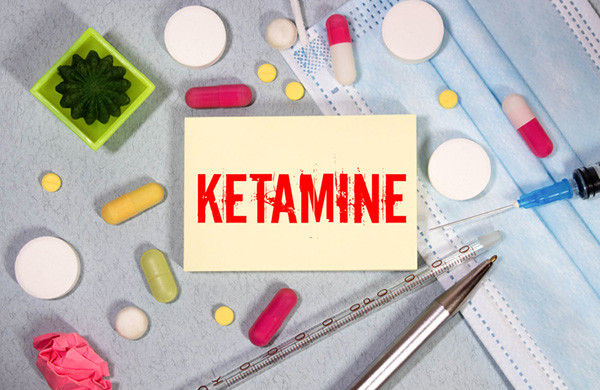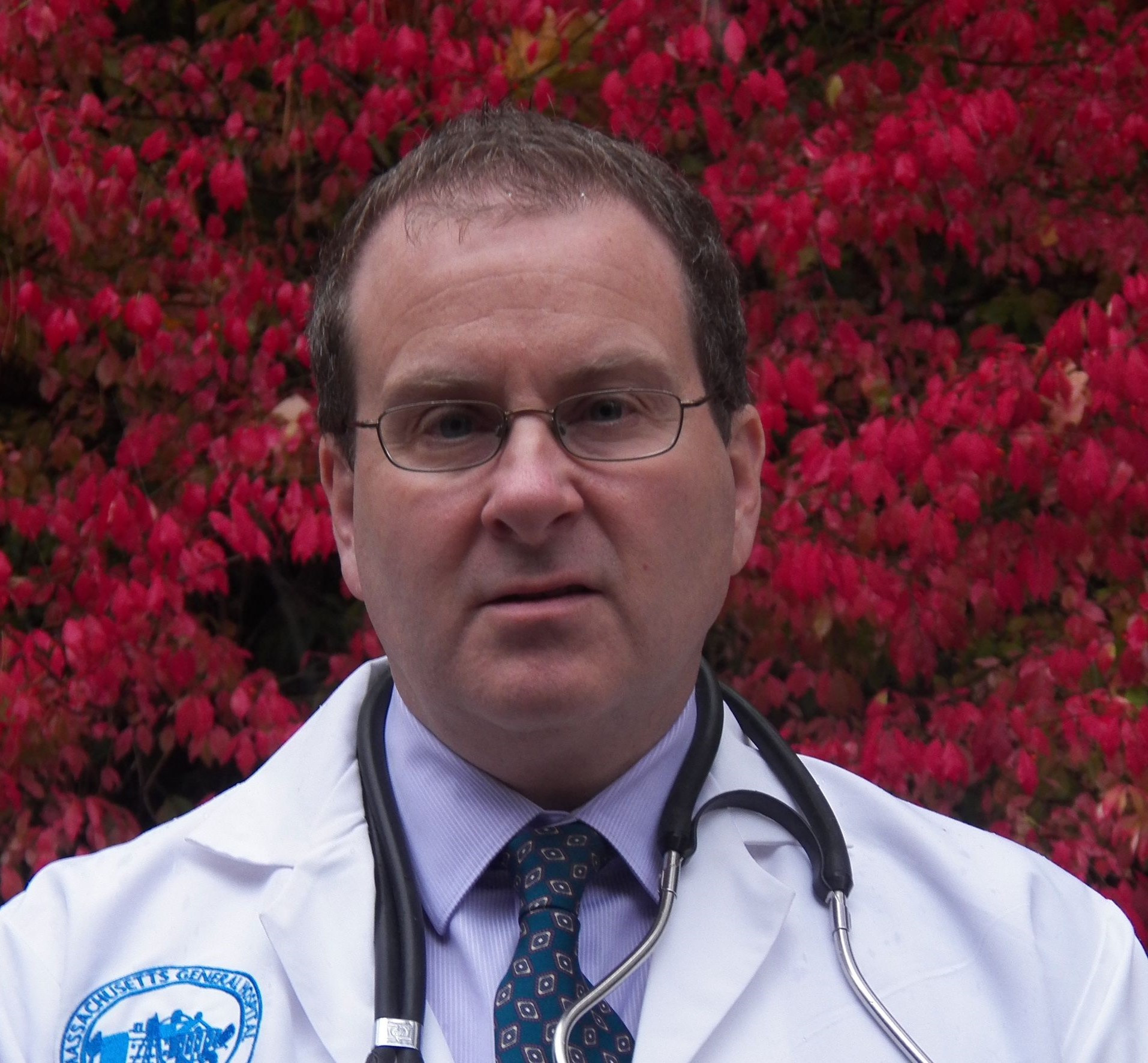Ketamine for treatment-resistant depression: When and where is it safe?
Ketamine is approved for hard-to-treat depression, but how safe are outpatient ketamine clinics?

Ketamine is an unusual type of psychedelic drug — called a dissociative — that has surged in popularity. It reliably produces pain control, forgetfulness, intoxication, disassociation, and euphoria, effects that underlie its medical and recreational uses.
Originally derived from PCP, or "angel dust," ketamine has been used in hospitals and veterinary clinics as an anesthetic for decades. It's also been cited as a drug of misuse under the moniker "special K."
More recently, it has been widely used for treatment-resistant depression (TRD) — that is, severe depression that has not improved with several other therapies, including people who are experiencing suicidal thoughts.
What do we know about the benefits of ketamine?
A prescription version of ketamine called esketamine (Spravato), given through a nasal spray, was approved in 2019 by the FDA for hard-to-treat depression. However, guidelines required its use "under the supervision of a health care provider in a certified doctor's office or clinic." That means medical professionals need to watch you use it, and then follow you after you've taken your dose, checking your vital signs and how you are doing clinically.
The effectiveness of ketamine nasal spray for TRD was first demonstrated for short-term treatment in research that showed meaningful decreases in depression scores for the group given ketamine over the group that received a placebo. (It's worth noting that participants in both groups continued taking their regular antidepressants due to concerns around not treating TRD in the placebo group.)
A longer-term study found that nasal ketamine (plus their regular antidepressant) helped people stay in stable remission 16 weeks into treatment.
Relief from TRD with ketamine happens rapidly: instead of waiting for an antidepressant medicine to hopefully provide some relief over the course of weeks, people who are suffering under the crushing weight of depression can start to feel the benefits of ketamine within about 40 minutes.
Is ketamine the right treatment for you?
First, it's important to remember that ketamine isn't a first-option treatment for depression. It's generally used only when other, more longstanding treatments haven't been effective. Ketamine doesn't offer a cure; rather, it improves symptoms of depression for a certain amount of time.
Talk to your primary care doctor, your mental health provider, and any other health care professionals who care for you to help make a decision. Based on your goals, your experiences with depression, and the possible side effects of the drug, it's often easier to say who isn't appropriate for ketamine treatment.
Should you go to a ketamine clinic for treatment?
Independent, outpatient ketamine clinics are popping up all over the place. It is estimated that there are currently hundreds to thousands of these clinics — almost all of which were established in 2019 when ketamine was approved for treatment-resistant depression.
Typically, these clinics are for-profit enterprises. They are staffed by some combination of either a psychiatrist or an anesthesiologist (who can administer the infusion), a nurse, a social worker, and (of course) the businesspeople who make it all work.
In writing this piece I called several ketamine clinics, posing as a patient, to investigate what would be involved in receiving ketamine therapy. Most of them seemed as if they would provide ketamine for me without any major hurdles, after an introductory medical interview by a nurse or a social worker. A few clinics required communication or a diagnosis from my psychiatrist — and this seemed quite sensible.
The clinics operate on a fee-for-service arrangement, so you would pay out of pocket, as insurance rarely covers this treatment. In the Boston area where I live, the ketamine infusions cost about $600 each, and a course of six infusions and a clinical re-evaluation are typically recommended. (I should note that the ketamine clinics affiliated with medical academic institutions seem to have more safeguards in place, and they may also be enrolling people in clinical trials.)
Are ketamine clinics safe?
What should you look for in a reputable and safe ketamine clinic? We don't yet have definitive answers to that question. A ketamine infusion can cause a profound dissociation from reality. One wonders if ketamine would be better controlled in a hospital setting, where there are protocols for safety in case anything goes wrong.
It was unclear (in part because I didn't actually go through with the therapy) how much communication, if any, there would be between the ketamine clinic staff and your health care providers. And, typically, the treatments you receive would not be included in your primary electronic medical record.
A new wrinkle is mail-order ketamine clinics, offer compounded ketamine products, including formulations that dissolve in your mouth. With varying amounts of medical information collected and clinical input, these clinics will mail out these products. In 2023, the FDA warned patients and healthcare providers about potential risks of using compounded ketamine products to treat depression or other psychiatric disorders.
What are the side effects?
Ketamine is generally considered safe, including for those who are experiencing suicidal ideation (thoughts or plans for suicide). The main side effects are dissociation, intoxication, sedation, high blood pressure, dizziness, headache, blurred vision, anxiety, nausea, and vomiting. Ketamine is avoided or used with extreme caution in the following groups:
- people with a history of psychosis or schizophrenia, as there is concern that the dissociation ketamine produces can make psychotic disorders worse
- people with a history of substance use disorder, because ketamine can cause euphoria (likely by triggering the opioid receptors) and some people can become addicted to it (which is called ketamine use disorder)
- teenagers, as there are some concerns about the long-term effects of ketamine on the still-developing adolescent brain
- people who are pregnant or breastfeeding
- older adults who have symptoms of dementia.
More detailed research needs to be done on the longer-term benefits and side effects of ketamine treatment, and on its safety and effectiveness for teens and older adults, as well as for the emerging indications of ketamine therapy for PTSD, OCD, alcohol use disorder, and other mental health conditions.
Finally, there is some concern that, with repeated dosing, ketamine can start to lose its effectiveness and require larger doses to produce the same effect, which is not sustainable.
Ketamine could provide hope for people with serious depression
Serious, treatment-resistant depression can rob people of hope for the future and hope that they will ever feel better. Ketamine can provide help and hope to patients who have not found relief with any other treatments. Given its efficacy in people considering suicide, it is plausible that ketamine may be lifesaving.
As we learn more from research on ketamine and from people's experiences in newer clinics, we will be better able to answer the questions of ketamine's longer-term effectiveness and what safeguards are needed for treatment. We may also learn who is most likely to safely benefit from ketamine therapies, and the best method of administration: intravenous infusion, a nasal spray, or a pill.
About the Author

Peter Grinspoon, MD, Contributor; Editorial Advisory Board Member, Harvard Health Publishing
Disclaimer:
As a service to our readers, Harvard Health Publishing provides access to our library of archived content. Please note the date of last review or update on all articles.
No content on this site, regardless of date, should ever be used as a substitute for direct medical advice from your doctor or other qualified clinician.















